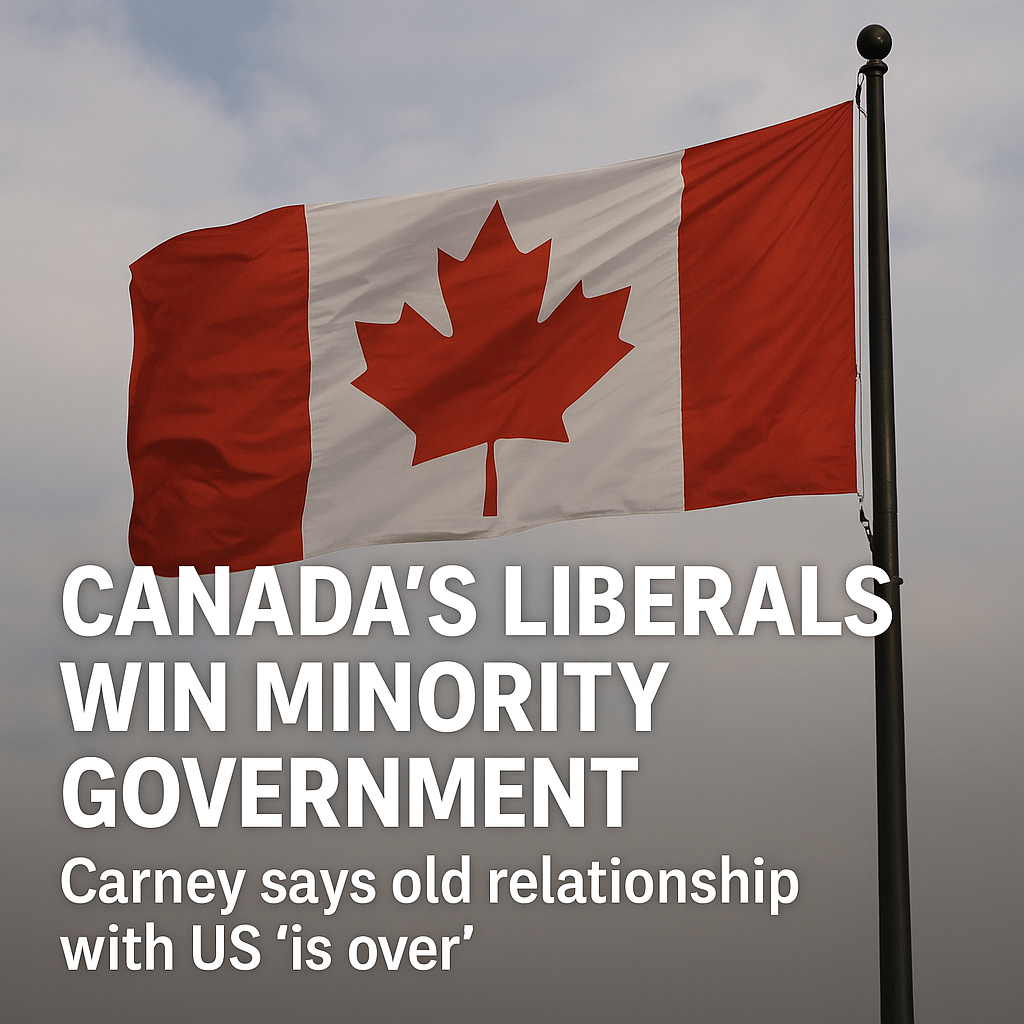OTTAWA – It was a night of mixed emotions across Canada as Mark Carney, the former central banker turned political newcomer, led the Liberal Party to a minority government victory. The win, though not the sweeping mandate he had hoped for, marked a significant comeback — and the beginning of a difficult chapter in Canada’s relationship with the United States.
With results still coming in late Monday night, the Liberals were ahead or elected in 167 ridings, falling just short of the 172 seats needed for a majority in the House of Commons. The Conservatives, under Pierre Poilievre, held 145 seats.
In his victory speech in Ottawa, Carney didn’t mince words about what lies ahead.
“Our old relationship with the United States… is over,” he said, pausing as the crowd grew quiet. “The system of open global trade anchored by the U.S., the one that’s helped Canada thrive for generations — that’s done. And we have to face that, together.”
The mood was sobering, not triumphant. While supporters cheered, many understood the gravity of what Carney was saying: Canada’s decades-long economic symbiosis with the U.S. is under direct threat, and the country will need to adapt — fast.
Carney’s calm but firm tone reflected the uncertainty many Canadians are feeling. As President Donald Trump floats the idea of turning Canada into the “51st state” and threatens steep tariffs on Canadian goods, Carney pledged to stand firm.
“America wants our land, our resources, our water — our country,” he said. “These are not idle threats… but we will never, ever be broken.”
For many Canadians, this election was about more than parties and policies. It was about protecting something deeply personal — national identity, sovereignty, and the future of their children.
Polling expert Shachi Kurl noted the Liberals’ win stemmed from a potent mix: backlash against Trump’s rhetoric, fatigue with Conservative messaging, and the exit of former PM Justin Trudeau, which allowed traditional Liberal voters to return.
Still, Carney’s government will need to work with other parties to get things done. Minority governments in Canada are notoriously short-lived — usually lasting under three years.
Meanwhile, Pierre Poilievre conceded defeat but vowed to keep the pressure on. “Change takes time,” he told a room of supporters, many of them visibly disappointed but still hopeful.
As for the smaller parties, the New Democratic Party’s Jagmeet Singh conceded defeat in his own riding and announced plans to step down as leader. The wave of patriotic urgency sparked by Trump’s comments appears to have drawn voters away from the NDP and Bloc Quebecois and toward the Liberals.
What happens next? That remains uncertain.
But if one thing is clear, it’s this: Canadians aren’t ready to give up on their country — or their future.
“These are tragedies,” Carney said of the shifting global order, “but it’s also our new reality.”
And with that, Canada steps into a new era — one where unity, resilience, and bold leadership will be more important than ever.




